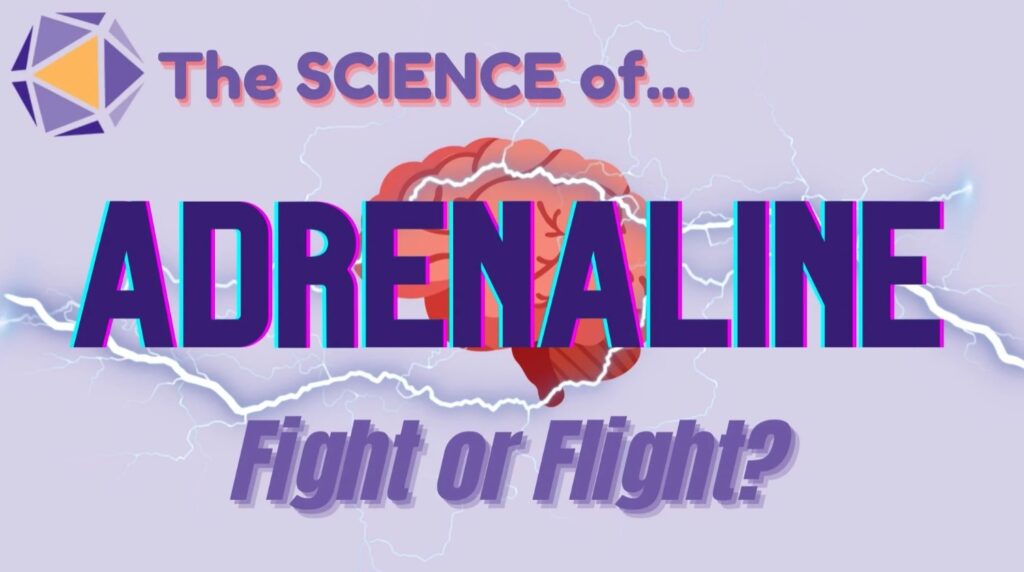
In our fast-paced world, stress has become an unwelcome guest, showing up at our doorstep uninvited.
Stress is necessary for human survival. However, when a person remains stressed for long periods, days, or even years, a host of health problems surface.
It’s time to learn how to not only befriend the stress but also understand the superhero within – cortisol. The cortisol that gets released during stress is actually your friend, but it turns into an enemy when you misuse its immense power.
Welcome to the first part of our journey to mastering stress and unlocking the hidden powers of cortisol.
The Stress Hormone – Cortisol
Cortisol, often dubbed the “stress hormone,” is your body’s alarm system. It’s your ally, ready to spring into action when you need to face life’s challenges head-on. But beware, because this superhero can turn into a villain if you don’t know how to wield its immense power.
Cortisol is produced by your adrenal glands. This steroid hormone is released into your bloodstream when you feel stressed. This allows you to switch to a flight or fight mode to deal with the threat you are facing.

Cortisol also regulates energy by selecting the right type and amount of nutrients the body requires to meet its physiological demands.
In today’s ever-stressed, fast-paced lifestyle, the body is pumping out cortisol almost constantly, wreaking havoc on the person’s health. When cortisol levels remain chronically elevated, this can have undesirable effects on weight, immune function, and chronic disease risk.
Understanding the Cortisol Release Mechanism
Let’s dive into the inner workings of your body’s stress response.
We all experience stress at different points in our lives. Financial stress, marital stress, exam stress, and of course, office stress.
Think about athletes and martial artists, warriors in their own right. They too face the jitters before a big match. The desire to perform, the discipline, and the anxiety – all these elements set the stage for cortisol’s grand entrance. It’s the surge of power that keeps them going through tough training and helps them claim victory.

But here’s the twist: when cortisol levels remain elevated for days on end, it’s like a storm that doesn’t pass. Your digestive system takes a hit, and that’s just the tip of the iceberg.
High cortisol levels over a prolonged period of time wreak havoc on the digestive system leading to a multitude of health problems. High cortisol levels are known to cause disturbance to the gut harmony.
Alcoholism and high levels of panic or depression also have an effect on spiking stress hormones. Corticosteroid medications like prednisone given for treating back pain or other aches may cause hypercortisolism. Other causes for cortisol levels that remain high include tumors of the adrenals or other glands.
Rising Stress Levels
Did you know that self-reported stress levels have surged by 10-30% over the past three decades? It’s not just you; the world is feeling it too.
The American Psychological Association conducted a survey called “Stress in America” for over 10 years starting from the year 2007. According to their findings, a relentless parade of stressors – money, work, and economic troubles – are holding the baton.
Stress Response Pathway and the Sympathetic Nervous System

Intrigued by the science of stress?
In times of stress, the sympathetic nervous system is activated. It is responsible for the increase in heart rate, and quick breathing, which is often labeled the ‘fight or flight’ reaction.
The Hypothalamic-Pituitary-Adrenal (HPA) axis works as the control center of your body’s stress response.
The HPA activates the sympathetic nervous system to release (corticotropin-releasing hormone) CRH. This, in turn, stimulates the release of adrenocorticotropic hormone (ACTH). ACTH then triggers the adrenal cortex to release the stress hormone cortisol.
On the other hand, the parasympathetic nervous system is activated when the body is in a relaxed state. Therefore, it is called the ‘rest and digest’ system.
Cortisol’s Life-Saving Actions
Cortisol is actually a ‘do good’ hormone. When stressful situations arise, cortisol springs into action.
It works to elevate the blood sugar level to meet the glucose demands of the body. It raises blood sugar levels, ensuring your cells have the energy they need to face adversity.
To maintain the increase in blood pressure, it then balances the sodium levels. This provides you with that extra surge of power to deal with the stress or threat and overcome life’s challenges.
And Next…
But we’re just scratching the surface. This is only the beginning of our journey to stress mastery. Stay tuned for what’s next.
This is just the first article in a series on stress and digestion. Don’t miss out on the next two parts:
Part 2: The Top 5 Ways Stress Affects Digestive Health (And What To Do About It)
